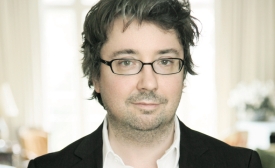russia
Stopfake.org, a group of researchers from the Mohyla School of Journalism in Kyiv, have identified two strong narratives in their study of Russian propaganda about the Euro Maidan: first, that it was a coup d’état directed by the U.S.; and second, that power was seized in Kyiv by a fascist regime. [...] With a lack of clear narratives and facts from the Ukrainian government, the Western media fell for the Kremlin’s skillful falsehoods.

Barbora Maronkova on how civil society rose to the occasion in the fight against disinformation in Ukraine.
On a balmy mid-March evening, 11 Russian journalists clustered around a table in one of Austin’s time-honored barbeque joints, a platter piled high with brisket and a trough of mashed potatoes between them. The group had gathered for a traditional southern meal on the final evening of a ten-day press tour sponsored by the U.S. Embassy in Moscow and the State Department’s Foreign Press Center.
In addition to the various groups of indigenous people who reside in the Arctic, eight countries Russia, Finland, Sweden, Norway, Iceland, Denmark, Canada, and the United States have claimed interest in the Arctic. Diplomacy between the different groups is required for cooperation and organization in the complicated region. Due to its importance in environmental security, sizable natural resource reserves, and remote location, the Arctic incentivizes cooperation through science diplomacy.
Many view Europe as a spent force in global politics. Conventional wisdom states that world politics today is unipolar, with the United States as the sole superpower. Or perhaps it is multipolar, with China, India, and the rest rising to challenge Western powers. Either way, Europe's role is secondary - and declining. The European Union, it is said, is too weak to avoid withering away in the face of Russian subversion, mass migration, right-wing revolt, British plans to leave, slow growth, and anemic defense spending.

A Cold War tale of cultural exchange and music diplomacy.
Facebook’s management has been reluctant to accept responsibility for a flow of fake news via FB that seems to have played a significant role — just like the Kremlin’s cover campaign of bots, hacking and leaks — in last year’s election. If we are determined to go after Russian “bots” and trolls, shouldn’t we also demand more accountability from those who influence greatly the news we are “fed” via social media?

Mark Dillen on Russia, social media, and information warfare.







